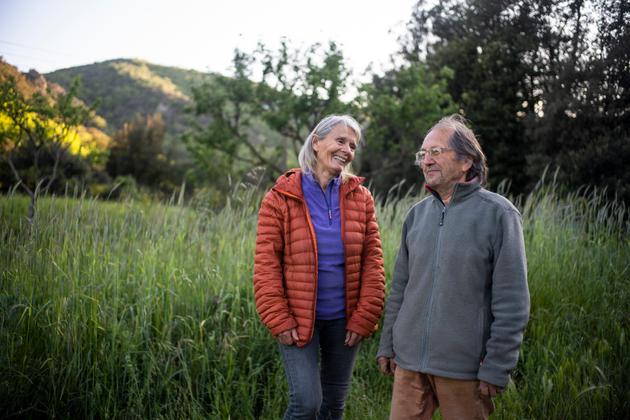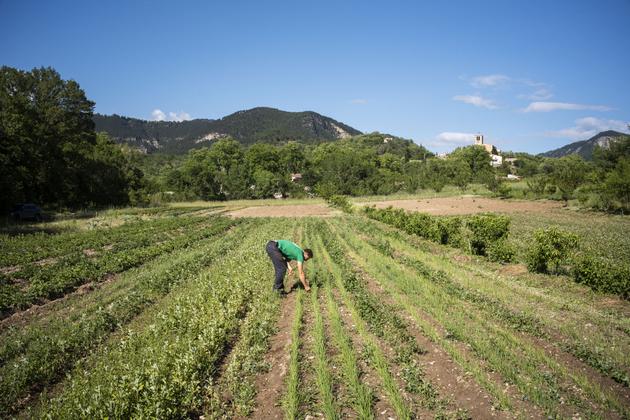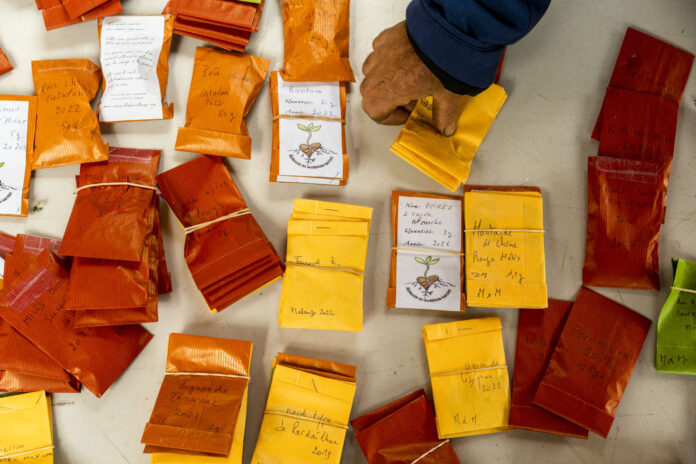In the field, where the rows of onions are arranged in a straight line, it’s easy to spot the seedlings by their tall stems, swaying in the light breeze. At the top, flowers begin to bud. Yves and Marie Giraud gaze at them. The market gardeners selected them and set them aside a year ago, in August 2022. The fragile umbels will soon deliver the future seeds for the crops of 2024. “The seed is like the plant’s memory, storing all the care it needs to continue reproducing according to the soil and changes in climate,” said Yves Giraud.
For 30 years, the couple from Le Bousquet-d’Orb, in the south of France, grew onions for which they had to buy seeds every year. That was until the day when their retired neighbor gave them cèbe seedlings, small onion plants unique to the region that have a sweet taste that he reproduced in the garden. With her husband, Marie Giraud scoured the region “looking for other strains of this treasure,” she said. “We finally discovered that it was the Tarassac onion, a local variety that the elders used to bring back from the Bédarieux market.” The couple learned how to select the best seeds each year, which are grown organically.

Global warming is already well underway in this area of the southern Cévennes natural region. The white frosts of September have disappeared and dry spells are getting longer. Market gardeners have gradually brought forward the date of the first sowings in order to harvest before the hot weather sets in. Alongside onions, they are now planting buckwheat, which helps pollination, as well as chickpeas and sorghum, a cereal adapted to drought conditions.
The Tarassac cèbe is now cultivated by young local growers. Settled in 2015 in Saint-Etienne-de-Gourgas, 10 kilometers further north, Martin Gomas chose this variety for its sweetness, its hardiness, and because the plant is “reproducible and free of rights.” “Adaptation also means preserving local resources and knowledge, so as to remain autonomous in the event of supply difficulties, as we experienced with Covid,” said this former Parisian, born in Pantin, a suburb of the capital, who sells his squash, onion, potato and sweet potato production “without difficulty” every year in wholesale and convenience stores, as “demand for local organic varieties is increasing.”

‘More resilient, more flexible’
All three are members of the Semeurs du Lodévois-Larzac, a collective of gardeners who, as part of the national Semences Paysannes network, safeguard local seeds, along with the stories and know-how to reproduce them. “The onions grown by these farmers are, genetically speaking, ‘population’ varieties, i.e. composed of relatively diverse individuals,” said science and technology historian Frédéric Thomas, coauthor of Gènes, Pouvoirs et Profits (“Genes, Power and Profit”) with Christophe Bonneuil. “This type of variety has gradually been replaced by industrial varieties, made up of clones, massively distributed by the seed industry to farmers in order to guarantee high yields.”
You have 71.39% of this article left to read. The rest is for subscribers only.




































